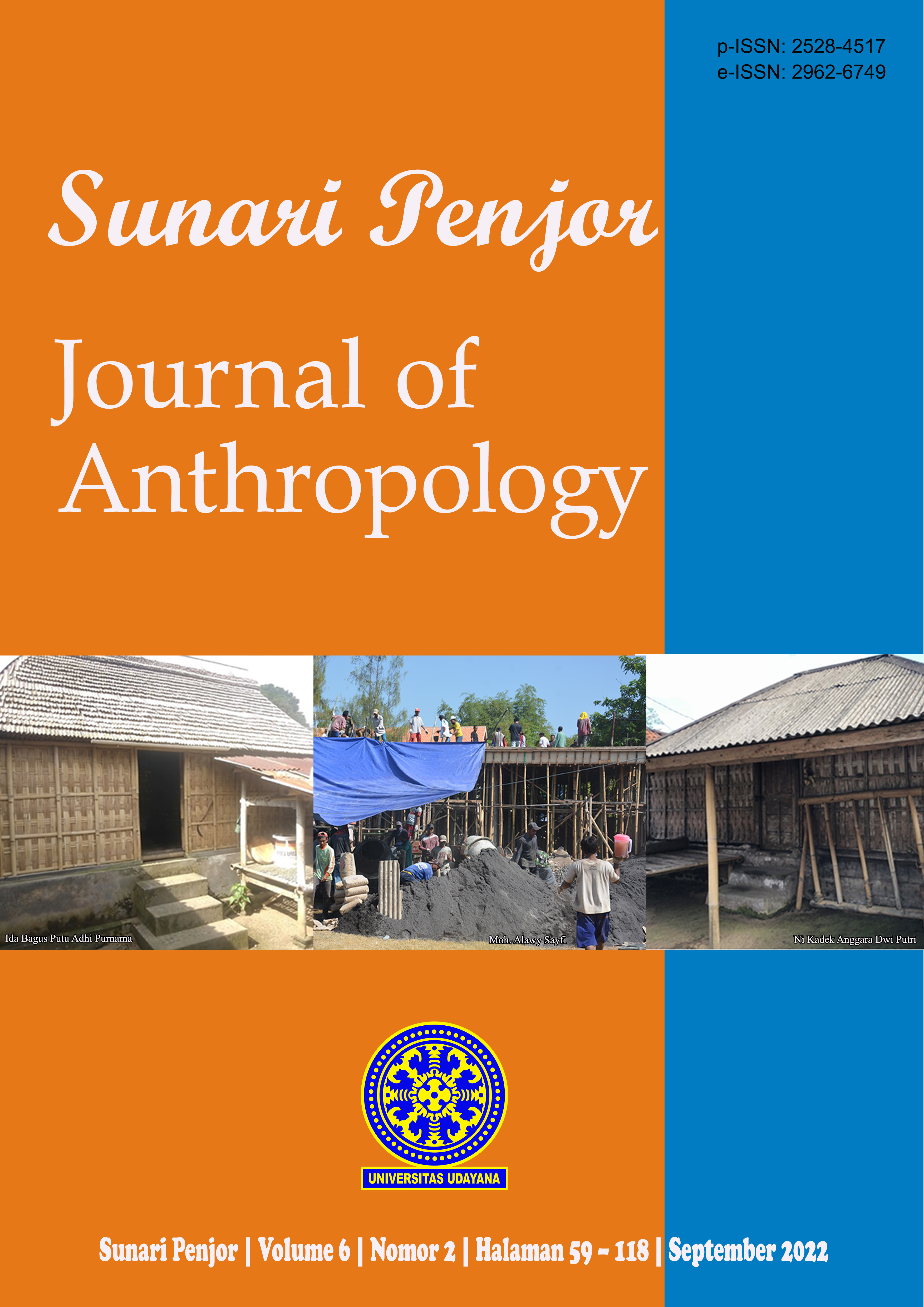Eksistensi Tradisi Kajekan bagi Masyarakat Desa Sukodadi Kecamatan Paiton Kabupaten Probolinggo Jawa Timur pada Era Modern
Abstract
A community tradition can’t be ascertained its existence. The kajekan tradition is one of mutual cooperation traditions carried out by the people of Sukodadi Village. In this study, using descriptive exploratory qualitative methods, data collection techniques Informant purposive non-random sampling, observation, interviews and documentation studies. The analysis of this research problem uses the principle of reciprocity theory. The results of this study reveal that the existence of this kajekan tradition still exists, but there are also those who don’t want to. The presence of the modern era is a factor in changing people's understanding in Sukodadi Village. The kajekan tradition is mutual assistance in building someone's house or cleaning around the house, or something similar. This tradition was formed due to the socio-cultural conditions of the people who tend to have high solidarity with one another. However, kajekan is an important mutual cooperation tradition because it has cultural, social, and religious meanings that are closely related to the people of Sukodadi Village. And have values that are upheld by the local community.
Downloads
References
Effendi, N. (2015). “Kearifan Lokal Menuju Penguatan Karakter Sosial: Suatu Tantangan Dari Kemajemukan Budaya di Sumatera Barat”. Jurnal Antropologi: Isu-Isu Sosial Budaya, 16(2), pp. 107-115. https://doi.org/10.25077/jantro.v16.n2.p107-115.2014
Irfan, M. (2016). “Metamorfosis Gotong Royong Dalam Pandangan Konstruksi Sosial”. Tesis Program Studi Magister (S2) Kajian Budaya Fakultas Ilmu Budaya Universitas Padjadjaran.
Khotijah, H. (2018). “Eksistensi Budaya Sesajen dalam Pernikahan Adat Jawa di Desa Leran Kecamatan Senori Kabupaten Tuban”. Disertasi UIN Sunan Ampel.
Koentjaraningrat. (1977). “Sistem Gotong Royong dan Jiwa gotong Royong”. Jurnal Antropologi Indonesia, No. 30, pp. 4-16.
Koentjaraningrat. (2015). Kebudayaan, Mentalitas dan Pembangunan. Gramedia Pustaka Utama.
Murdiyanto, E. (2020). Sosiologi Perdesaan Pengantar untuk Memahami Masyarakat Desa. Lembaga Penelitian dan Pengabdian Kepada Masyarakat (LP2M) UPN Veteran Yogyakarta Press.
Rochmadi, N. (2012). “Menjadikan Nilai Budaya Gotong-Royong Sebagai Common Identity Dalam Kehidupan Bertetangga Negara-Negara ASEAN”. Repository Perpustakaan Universitas Negeri Malang, 1-9.
Semiawan, C.R. (2010). Metode Penelitian Kualitatif. Grasindo.
Siregar, D., & Gulo, Y. (2020). “Eksistensi Parmalim Mempertahankan Adat dan Budaya Batak Toba di Era Modern”. Anthropos: Jurnal Antropologi Sosial dan Budaya, 6(1), pp. 41-51. https://doi.org/10.24114/antro.v6i1.16632
Sosiawan, E. A. (2020). “Penggunaan Situs Jejaring Sosial Sebagai Media Interaksi Dan Komunikasi Di Kalangan Mahasiswa” Jurnal Ilmu Komunikasi, 9(1), pp. 60-75. https://doi.org/10.31315/jik.v9i1.3416
Syawaludin, M. (2017). Teori Sosial Budaya dan Methodenstreit. CV. Amanah.
Zanibar, Z. (2004). “Wilayah Kajian Ilmu Hukum”. Jurnal Lex Jurnalica, 2(1), pp. 5-17.














